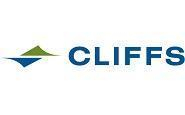Market Segment

October 22, 2021
Cliffs Q3 Earnings Surge Higher, Contracts Seen as Buffer to Spot Declines
Written by Michael Cowden
Cleveland-Cliffs Inc.’s earnings skyrocketed higher in the third quarter, and the steelmaker predicted that higher priced contract deals would protect it from any slip in spot prices in future quarters.
The Cleveland-based steelmaker recorded net income of $1.28 billion in the third quarter of 2021, up from a mere $2 million in the same quarter last year, according to earnings data released on Friday, Oct. 22.
![]()
Revenue more than tripled to $6 billion in the third quarter of this year compared to revenue of $1.65 million in the year-ago quarter.
Average steel selling prices were $1,334 per ton ($66.70 per cwt) in the third quarter of 2021, up 33% from $1,000 per ton in the third of 2020, the company said.
All told, Cliffs sold 4.2 million tons of steel in the third quarter. The mix: 32% hot rolled, 18% cold rolled, 31% coated, 6% plate, 4% stainless and electrical, and 9% other products such as slabs and rail.
“We have already concluded the renewal of several annual fixed-price sales contracts with a significant number of our most important customers, and we are pleased with the successful results of these negotiations,” Cliffs Chairman, President and CEO Lourenco Goncalves said in a statment.
That sets Cliffs apart from other steelmakers that are more reliant on spot sales. The result: “We believe that our average sales price next year should be higher than in 2021,” he said.
Approximately 45% of Cliffs’ sales book is based on fixed-priced contracts. Some of those contracts have already reset significantly higher compared to last year – and it will be increasingly difficult for holdouts to resist that trend, Goncalves said during an earnings conference call on Friday.
Cliffs provides roughly 5 million tons to the automotive industry. That amounts to about a third of the sector’s requirements assuming that 15 million vehicles are built annually and that each consumes a ton of steel. But the company is less reliant on automotive than the former AK Steel was – which gives it more leverage in contract negotiations, he said.
And automakers that have already signed contracts with Cliffs have agreed not only to higher prices but also to more tonnage. That means the company could afford to lose as many as one million tons of steel shipments to the automotive sector – the equivalent of one large automaker – without harming the bottom line. “We are going to get to a point where we are going to get selective at the end,” Goncalves said.
Contract prices are typically based in part on spot prices. Steel Market Update’s sheet prices have wobbled in recent weeks, although they remain sharply higher compared to when contracts were negotiated last year. Case in point: SMU’s hot-rolled coil price stands at $1,910 per ton ($95.50 per cwt), down 2.3% from $1,955 per ton in early September but not far from triple the $675 per ton recorded in October of last year.
On the scrap side, Cliffs said its $775 million acquisition of Ferrous Processing and Trading Co. (FPT) – a leading recycler of prime scrap – would allow it to charge more prime material into its basic oxygen furnaces (BOFs). The shift, combined with increased use of hot-briquetted iron (HBI) in its blast furnaces, will allow the company to increase hot metal production while also significantly reducing coke consumption and the CO2 emissions associated with the coking process, Goncalves said.
The deal for FPT remains on track to close in the fourth quarter. “This is real growth, profitable growth, environmentally friendly growth,” he said.
Goncalves also chided electric arc furnace (EAF) steelmakers for their use of pig iron, which he said makes them less environmentally friendly once Scope 3 emissions are taken into account.
Scope 1 refers to emissions generated directly by a producer’s operations. Scope 2 refers to emissions related to the energy that powers that company. And Scope 3 includes other emissions associated with a mill’s manufacturing process – including transportation and logistics. Scope 3 is a concern for traditional pig iron sources – think Brazil, Russia and Ukraine – because of carbon intensive reduction processes and pollution associated with overseas shipping.
By Michael Cowden, Michael@SteelMarketUpdate.com







